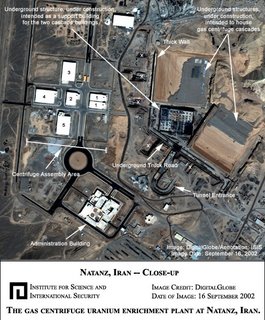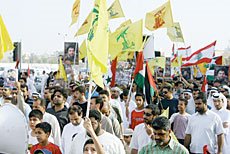China faces suspicions about organ harvestingBy Gregory M. Lamb | Staff writer of The Christian Science Monitor
A pair of human rights activists are charging that "a crime against humanity" is happening on a large scale in China. Members of Falun Gong, a spiritual movement banned by the Chinese government since 1999, are being "in effect, murdered for their organs," which are being sold to buyers from China and abroad, says David Kilgour, a former member of the Canadian Parliament and coauthor of the report.
Mr. Kilgour and his partner, Canadian human rights lawyer David Matas, are now traveling the world speaking with governments and professional and human rights organizations urging further investigation of the allegations. Early last month, the pair released a report ( http://investigation.go.saveinter.net/) laying out details of an investigation they undertook on behalf of a Falun Gong support group, the Coalition to Investigate the Persecution of the Falun Gong in China.
"Ideally, we would like to pursue further research before we come to any firm conclusions," the two conceded, while noting the difficulty in obtaining accurate information within the closed society of the People's Republic of China.
But while the evidence may not persuade everyone who reads their report, it is strong enough in their minds to render a verdict. "Based on what we now know, we have come to the regrettable conclusion that the allegations are true," the report says. "We believe that there has been and continues today to be large-scale organ seizures from unwilling Falun Gong practitioners."
The source of some 41,500 organ transplants in China in the years 2000 through 2005 remains unexplained, leading to the possibility that they may be the result of the execution of Falun Gong members, the report says.
The Chinese government "since 1999 have put to death a large but unknown number of Falun Gong prisoners of conscience," the report alleges. Their vital organs were seized involuntarily "for sale at high prices, sometimes to foreigners, who normally face long waits for voluntary donations of such organs in their home countries."
The Falun Gong movement, whose guiding principles are truthfulness, compassion, and forbearance, was founded in China in 1992 by Li Hongzhi, who now lives in the United States. Its philosophies incorporate ideas from Buddhism and Taoism and include slow-motion meditative exercises. Falun Gong is generally seen as a peaceful and law-abiding movement outside China, but within its borders it is officially deemed a dangerous cult. For several years, Falun Gong followers around the world
Phone transcripts: Shopping for Falun Gong organsAs part of their report alleging that China was executing Falun Gong prisoners and harvesting their organs for transplantation, Canadian lawyers and human rights activists David Kilgour and David Matas included transcripts of telephone calls made by Mandarin Chinese speakers from North America to hospitals and other institutions in China. The callers inquired about the availability of organs from Falun Gong prisoners. The caller below is identified only as "M" to protect his or her identity. Excerpts from English translations of some of the transcripts follow:
From a call to "Li" at the Mijiang City Detention Center in Heilongjiang Province (June 8, 2006):
M: Do you have Falun Gong [organ] suppliers? ...
Li: We used to have, yes.
M: What about now?
Li: ... Yes.
...
M: Can we come to select, or you provide directly to us?
Li: We provide them to you.
M: What about the price?
Li: We discuss after you come.
...
From a call to Shanghai's Zhongshan Hospital Organ Transplant Clinic (March 16, 2006):
M: ... So how long do I have to wait [for organ transplant surgery]?
Doctor: About a week after you come....
M: Is there the kind of organs that come from Falun Gong? I heard that they are very good.
Doctor: All of ours are those types.
From a call to "Dr. Lu" at Nanning City Minzu Hospital in Guangxi Autonomous Region (May 22, 2006):
M: Could you find organs from Falun Gong practitioners?
Dr. Lu: Let me tell you, we have no way to get [them]. It's rather difficult to get it now in Guangxi. If you cannot wait, I suggest you go to Guangzhou because it's very easy for them to get the organs....
M: Then they use organs from Falun Gong practitioners?
Lu: Correct....
M: ... What you used before [organs from Falun Gong practitioners], were they from detention center[s] or prison[s]?
Lu: From prisons.
M: ... And it was from healthy Falun Gong practitioners...?
Lu: Correct. We would choose the good ones because we assure the quality in our operation.
From a call to "Dr. Dai" at Shanghai Jiaotong University Hospital's Liver Transplant Center (March 16, 2006):
M: I want to know how long [the patients] have to wait [for a liver transplant].
Dr. Dai: The supply of organs we have, we have every day. We do them every day.
M: We want fresh, alive ones.
Dr. Dai: They are all alive, all alive....
...
M: I heard some come from those who practice Falun Gong, those who are very healthy.
Dr. Dai: Yes, we have. I can't talk clearly to you over the phone.

















